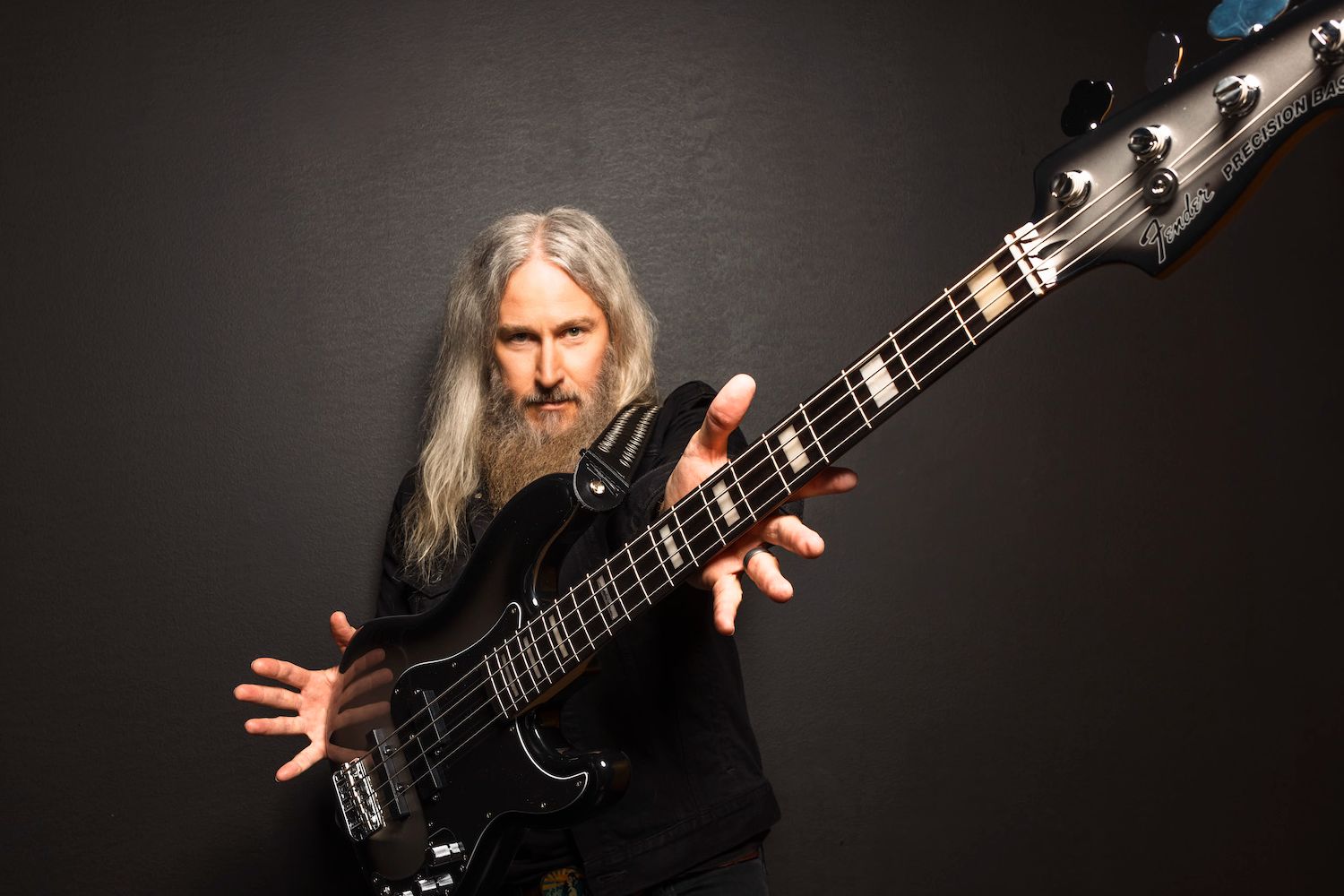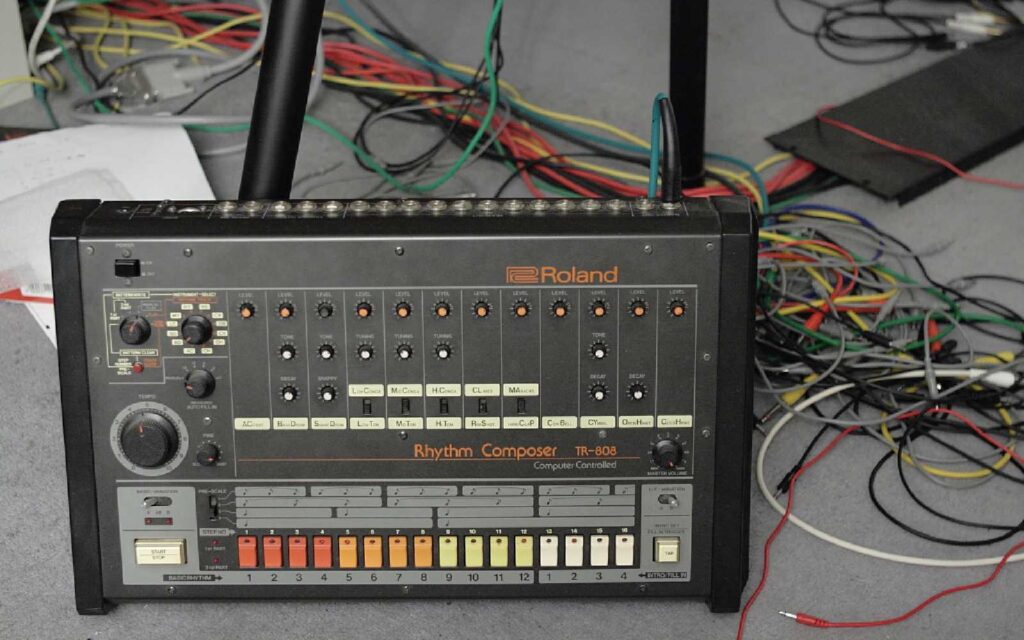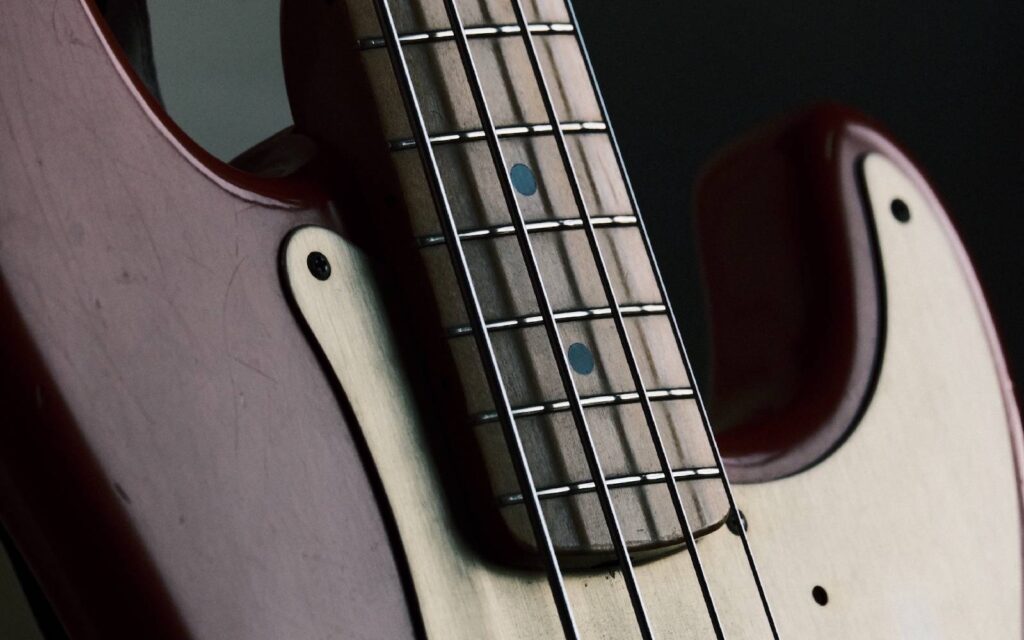Troy Sanders of Mastodon chats to Mixdown about his collaboration with Fender on his Signature Precision Bass.
Of all the idiosyncrasies associated with the mighty Mastodon, the guttural rumble of the band’s bass sound may be chief amongst them. The high points of the band’s low end are provided by founding member Troy Sanders, who also serves as one of the band’s three primary vocalists. In order to achieve this, Sanders has worked with Fender basses for some 15 years – and now, he’s worked with them to release a signature Precision Bass, his second model for the company. Speaking to Mixdown over Zoom, the veteran bassist noted that such a feat was only possible due to the strength of his relationship with the company.
Read up on all the latest interviews here.
“The building block of all good things is establishing a very trusting and very appreciative relationship,” he says.
“I’ve been lucky enough to have that with Fender. We did a Jaguar bass in the Silverburst colour scheme about 10 years ago now, and it was awesome – I’ve played that thing at every live show since. A handful of years ago, I was speaking with them about the idea of doing the Silverburst again with a P-Bass. At the time, they’d never done one with that colour scheme, so they were excited about that. Eventually, we came up with a bass that’s both active and passive – which is a real point of difference in not only the basses I play, but the basses Fender offers.”
Sanders goes on to note that he largely switches between active and passive basses depending on which setting he is playing them. The latter, he finds, are better for studio recording – be it with Mastodon, or with one of his supergroups like Killer Be Killed or Gone Is Gone.
“I’ve learned over the years that that tends to translate better for recording,” he explains.
“From the board’s perspective, or even from the producer or engineer’s perspective, having a passive bass has always been important.”
When Sanders is on stage, however – with any of those acts, or indeed playing Phil Lynott’s iconic lines in the current incarnation of Thin Lizzy – it’s got to be active.
“I change basses for different tunings throughout a show, and I like all of them to be active so I can maintain that same level,” he says.
“The passive/active idea was really intriguing to all of us working on it, and it’s probably the biggest element that allows it to be set apart from anything standard that they produce.”
Indeed, the Fender Precision bass has long been one of the company’s standard setters, having originally been released all the way back in 1951. That’s not something that is lost on Sanders, who has long taken note of both its omnipotence and omnipresence.
“I’ve been fortunate to record in a lot of very nice studios around the United States in my career – and at every single one, they have a 70s P-Bass,” he says.
“It’s always there. I will always bring one or two of my favourite basses to a recording session, right? We’ll dial it in and get comfortable with it, and after a few takes – every time, without fail – the engineer will say, ‘that sounds good, but why don’t you try it on this?’ They’ll hand me the P-Bass, and eight times out of ten that’s what I’ll track on. There’s just something about it, y’know? So, when I approached Fender with the idea I was like, ‘I want a bass guitar that I can record on that won’t get outdone by a standard Fender that’s already in the studio’.”
To further distinguish the bass, and add the signature traits required for a signature model, Sanders’ new P-Bass also includes a logo on the 12th fret lifted from Mastodon’s 2017 album Emperor of Sand as well as a neck plate with insignia found on the cover of their legendary debut album Remission.
“It’s called a worker bee,” Sanders says of the latter.
“Our artist, Paul Romano, incorporated that onto the album because we had been touring non-stop in a van for our first two years up to that point. He said to us that the worker bee represented our sacrifice and our dedication to make things happen on our own. It keeps me humbled, every time I see it. The symbolism behind it is very powerful to me.”
Sanders counts himself among an elite group of musicians that have had a signature model released by Fender – which heightens even further in its illustrious exclusivity when whittled down to those that have had the opportunity more than once. His excitement at the prospect is palpable, and his hopes for both Mastodon die-hards and P-Bass devotees to experience what his model has to offer are endearingly high.

“I’m just blown away that I’m working with them again,” he says.
“Opportunities like this are rare, and they’re really cool. If you love your own band and you love a song you’ve made together, that’s the most important thing. Once you release something and it goes out into the world, you obviously hope people like it – but if they don’t, that’s OK, because you need to be in love with it first and foremost. I love this bass, and I hope people that pick it up and even purchase it love it too. But if they don’t? That’s OK, because I love it and I’m super excited about it.”
For more information on the Troy Sanders Precision bass, head to Fender Music Australia.







